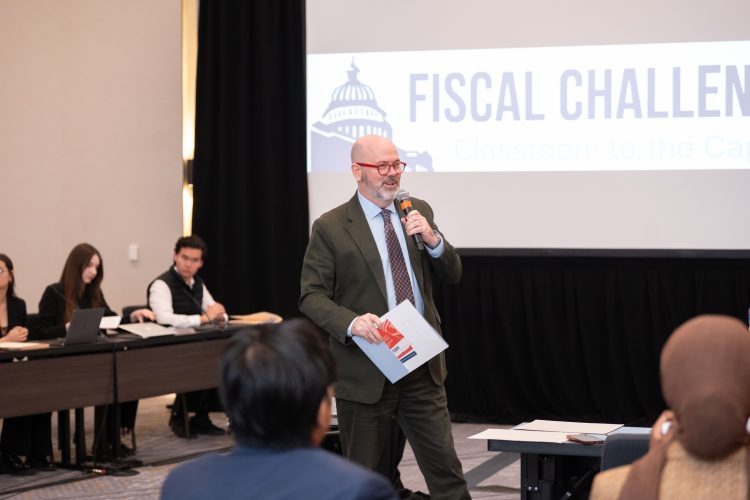While elected officials are celebrating an agreement to extend the payroll tax cut, unemployment benefits and the “doc fix” on Medicare reimbursements through the end of this year, there would be much more to celebrate if the deal had included a more comprehensive financing plan.
Instead, political convenience has again trumped the often-voiced desire to put the country’s budget on a more sustainable path. Approving tax cuts and spending increases are always easier to do than figuring out how to pay for them.
While elected officials are celebrating an agreement to extend the payroll tax cut, unemployment benefits and the “doc fix” on Medicare reimbursements through the end of this year, there would be much more to celebrate if the deal had included a more comprehensive financing plan.
Instead, political convenience has again trumped the often-voiced desire to put the country’s budget on a more sustainable path. Approving tax cuts and spending increases are always easier to do than figuring out how to pay for them.
On the bright side, Congress did find around $50 billion in offsets for the doc fix and the extension of unemployment benefits. However, the decision to not offset the payroll tax is concerning because of the precedent it sets heading into a year that will see the large tax cuts originally enacted in 2001 and 2003 expire. Extending those tax cuts without offsets would add an estimated $3.3 trillion to the deficit over 10 years.
With lingering concerns about the strength of the U.S. economic recovery and continued worries about Europe’s financial problems, a case can be made for some deficit financing of measures that can effectively and efficiently support the American economy. Extending unemployment benefits and preventing an increase in payroll taxes provide such support.
The unemployed tend to quickly spend the benefits they receive, providing a quick boost for the segments of the economy that provide the recipients and their families with basic goods and services. Given the continued high levels of unemployment in many parts of the country, the sudden discontinuation of benefits for many Americans would place a drag on the U.S. economy as well as hardships on the individuals and families involved.
The temporary payroll tax cut was in effect throughout 2011, reducing the amount of Social Security taxes paid by workers from 6.2 percent of their taxable wages to only 4.2 percent. The Social Security tax is only levied on annual earnings up to $110,100 this year; any income above that level is not subject to the tax. So while temporarily reducing the tax benefits all workers, it has a proportionately larger impact on those whose incomes fall somewhere below $110,100. Those workers and their families are likely to quickly spend more of the money they will have from the tax cut than are higher-income taxpayers.
But the cost of this short-term boost for the economy could have been covered through offsets that would be phased in later, as the economy strengthened. Instead, the $90 billion in costs are simply being piled onto the $15.3 federal debt with a “Let’s worry about it later” attitude.
The decision to forgo offsets does not seem rooted in economics, but rather in political expedience that does not bode well for the future debate on taxes. After all, if the decision to deficit-finance the payroll tax cut was strictly economic, Congress would have also deficit-financed the unemployment benefit extension — which the Congressional Budget Office (CBO) has evaluated as a more effective stimulus measure than the payroll tax cut.
Furthermore, the strongest economic case for these measures would be to pass them in conjunction with legislation that moved the ball forward on longer-term fiscal reforms addressing the structural problems in the federal budget and put the country’s finances on a more sustainable course.
Yet elected officials made only limited progress on the longer-term work over the last year, and a special congressional committee on deficit reduction ended in failure last fall. The “grand bargain,” where both parties make the hard choices on the spending side and tax side of the budget, appears just as elusive as ever. So too does the political will to follow through on promises to prevent any new legislation from adding to the deficit.
This is a major concern heading into an election year in which Congress and the President will have to decide what to do with the expiring tax cuts and with the looming spending cuts from the sequesters triggered to hit at the start of 2013, because of the super committee’s failure.
Continue Reading










